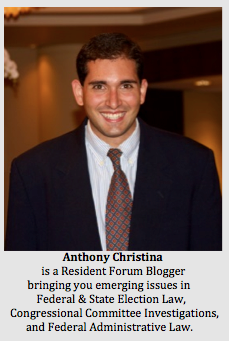The mid 2000’s HBO program “The Wire” has been critically acclaimed as one of the best law enforcement dramas of all time. Recently, however, a new ‘Wire’ has gotten the law enforcement community and Congress into a heated debate.
The Wire Act of 1961 (18 U.S.C § 1084) stems from the plethora of anti-organized crime bills that the Robert Kennedy Justice Department pressed Congress to pass during the 1960’s in light of what was perceived as a systematic plague of multi-state racketeering and illegal gambling operations. It prohibited interstate gambling transactions through the use of a ‘wire’ or any other electronic communications devices.
The recent winter has been brutal in the beltway. On March 5, 2015 the House Judiciary subcommittee on Crime, Terrorism, Homeland Security and Investigations originally planned to host a hearing on H.R. 707: The Restoration of America’s Wire Act before it was canceled due to inclement weather. H.R. 707 sponsored by Rep. Jason Chaffetz (R-UT-3) would: restore the long-standing interpretation of the Wire Act and is a response to concerns expressed by many state Attorneys General about the impact of the DOJ decision on their states.
Specifically, Chaffetz’s bill would amend the Wire Act to further strengthen the language to prohibit internet gambling. Nevada, New Jersey, and Delaware mark the most recent states that have legalized internet gambling, including poker.
Chaffetz’s bill, which is backed by Las Vegas Casino magnate, Sheldon Adelson, is in perceived response to a policy backtracking by a 2011 Department of Justice Office of Legal Counsel Opinion. This OLC Opinion dealt with the use of the internet for the online purchases of lottery tickets in New York and Illinois. The Opinion stated “[i]nterstate transmissions of wire communications that do not relate to a ‘sporting event or contest’ fall outside the reach of the Wire Act . . . Because the proposed New York and Illinois lottery proposals do not involve wagering on sporting events or contests, the Wire Act does not prohibit them.” In response, Mark Hichar, a partner at the gambling law group at Edwards Wildman LLP, said that with the OLC Opinion: “The Department of Justice at long last has removed a cloud that existed with respect to intrastate Internet wagering and we have yet to see how far reaching its implications will be.”
This apparent reversal of close to 50 years of federally prohibiting interstate electronic gambling essentially opened the floodgates for further online gambling proliferation as evidenced by states like New Jersey.
A February 4, 2015 letter from sixteen state Attorneys General to the Chairman and Ranking Member of the Senate Judiciary Committee argued that Congressional action must be taken due to the many inconsistencies in state law that have now developed in the wake of the 2011 opinion. They go on to say:
To be sure, we believe Congress may only regulate transactions which are interstate in nature, consistent with fundamental constitutional principles. Our system of government commands that other matters be left to the state authorities. To the extent Internet gambling is interstate in nature, federal oversight, in addition to state regulation, is appropriate.
So far the courts have been relatively silent on states authorizing electronic gambling. Cited and relied upon by the Justice Department in their 2011 OLC Opinion, the 5th Circuit in In re Mastercard Int’l Internet Gambling Litig. held that The Wire Act’s prohibition only applied to the wagering of sports betting and not other types of online gambling. However the Supreme Court has not yet had a chance to rule on the Act.
Given the intense lobbying by GOP mega donor Sheldon Adelson in support of the bill, and given the inevitability of the popularity of internet gambling, the stage is set in the coming months for a heated debate in Washington as to whether or not Congress will take action to update the law because the matter almost invariably involves interstate commerce of some sort.
Published April 15, 2015
